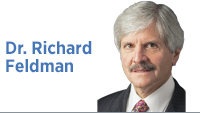Subscriber Benefit
As a subscriber you can listen to articles at work, in the car, or while you work out. Subscribe Now For decades, public health officials and anti-tobacco activists have talked about the “endgame” in tobacco control. It refers to laws and policies that would virtually end tobacco use.
For decades, public health officials and anti-tobacco activists have talked about the “endgame” in tobacco control. It refers to laws and policies that would virtually end tobacco use.
Great strides have been made in reducing smoking in the past half-century. These measures include smoke-free laws, increasing cigarette taxes, anti-smoking media campaigns, state tobacco prevention and cessation programs, and the Master Settlement Agreement requiring the tobacco industry to pay states billions of dollars to compensate for state-incurred health care costs.
Congress restricted tobacco advertising, mandated tobacco warning labels on product packaging, banned flavored cigarettes (except menthol), increased the legal age for sales to 21, and gave the U.S. Food and Drug Administration authority to comprehensively regulate tobacco products, including nicotine content (natural or synthetic).
These efforts have resulted in the reduction in the social acceptability of smoking, especially in public. They have also drastically reduced the percentage of adult smoking to an all-time low nationally of 11% (Indiana is 19%). Adolescent tobacco smoking has also greatly decreased in the past 25 years but unfortunately has been replaced by vaping.
According to the Centers for Disease Control and Prevention, despite these advances, tobacco use still represents the leading cause of preventable disease and premature death in the U.S., with 521,000 tobacco-related deaths yearly. One in five deaths is caused by tobacco use; one-half of smokers will eventually die from their tobacco addiction.
It’s widely thought that the remaining percentage of people smoking is extremely difficult to reduce, hence the endgame-strategy discussion. One strategy gaining steam is referred to as a “birth-date phaseout” approach. Recent commentaries, including an article in the May 30 issue of the New England Journal of Medicine, call attention to this age-based strategy.
The idea is to institute a threshold birth date after which it would be illegal to sell tobacco products to anyone with later birth dates. For example, using a birth date of Jan. 1, 2009, would prevent individuals currently too young to legally purchase tobacco from buying it their entire lives. Eventually, no one would be able to purchase tobacco and, depending on the law, other nicotine-containing products.
This strategy would not affect tobacco access to those born before the threshold birth date and current addicted smokers. It also would not sanction those illegally buying tobacco, only the retailers selling it.
The concept of a birth-date phaseout has been circulating worldwide for decades. New Zealand passed such a law in 2022 but subsequently repealed it with change in governmental leadership. The approach is currently being considered in the U.K., the European Union, Norway, Australia and some Asian countries. In the United States, Brookline, Massachusetts, enacted a phaseout in 2020, and since being upheld by the state’s Supreme Court as constitutional, it’s being considered by other Massachusetts localities. A municipal law would have relatively little impact; eventually, it would have to be followed by state or federal laws to be truly effective.
Legislative proposals differ in what products are prohibited. Some include only combustible tobacco products as in the U.K. Others, like Brookline’s, are broader and include vapes.
Endgame strategies, including the birth-date phaseout, could create a tobacco/nicotine-free generation and eventually a society free from tobacco product toxins and carcinogens. Millions of lives and billions in health care costs would be saved. But there are substantial barriers to enactment, such as loss of state tobacco-tax revenue and opposing business and political pressures.
Next month, I will review another novel endgame strategy.•
__________
Feldman is a family physician, author, lecturer and former Indiana State Department of Health commissioner for Gov. Frank O’Bannon. Send comments to [email protected].
Click here for more Forefront columns.
Please enable JavaScript to view this content.

My answer to that title is an emphatic “No”. No more than Prohibition got rid of drug problems. The key is education. The more people know, the less they will smoke. There will always be that small percentage who will ignore common sense. That is on them. My feeling about heavier taxes on tobacco products is just a thinly veiled means of increasing revenue for a greedy government. Mitch Daniels, who I like actually, promoted an increase in tobacco taxes because, “I wanted less smoking in Indiana”. My first question was, “Is that why we have such income taxes?”